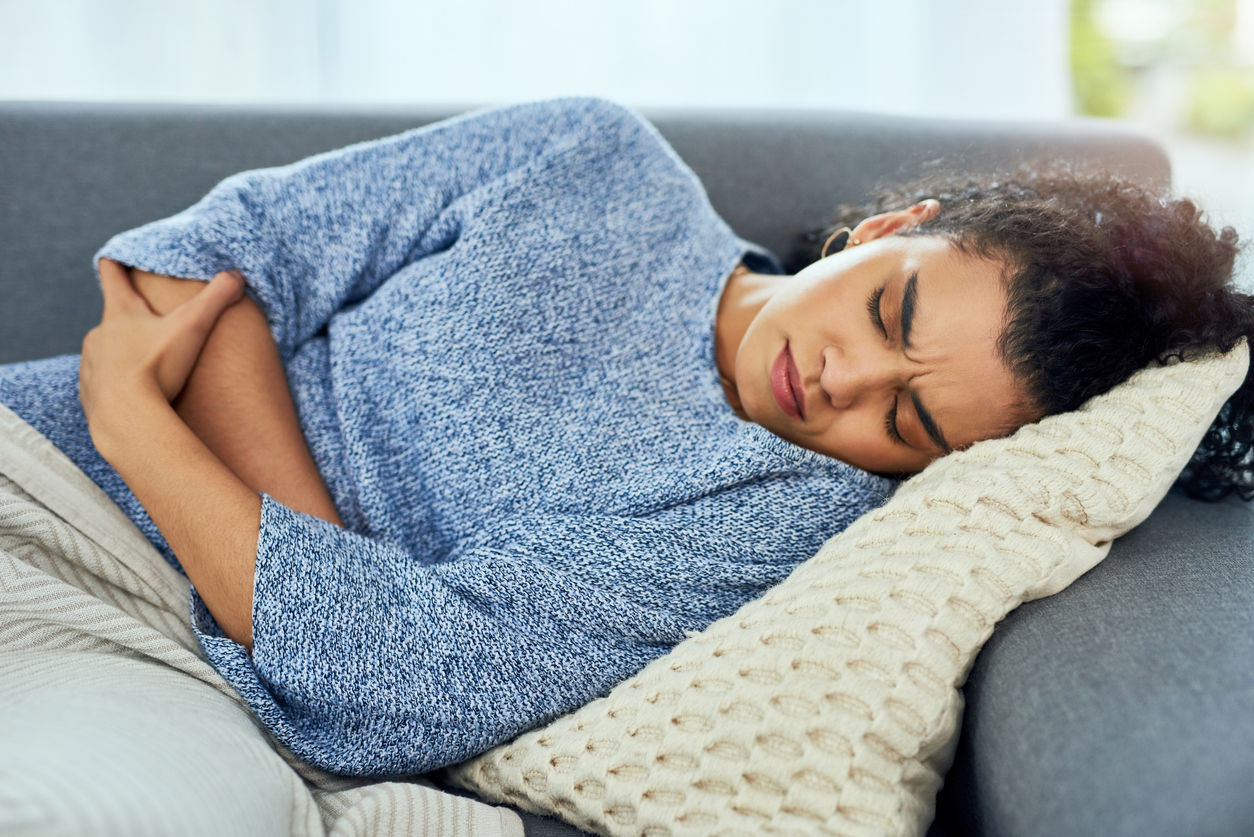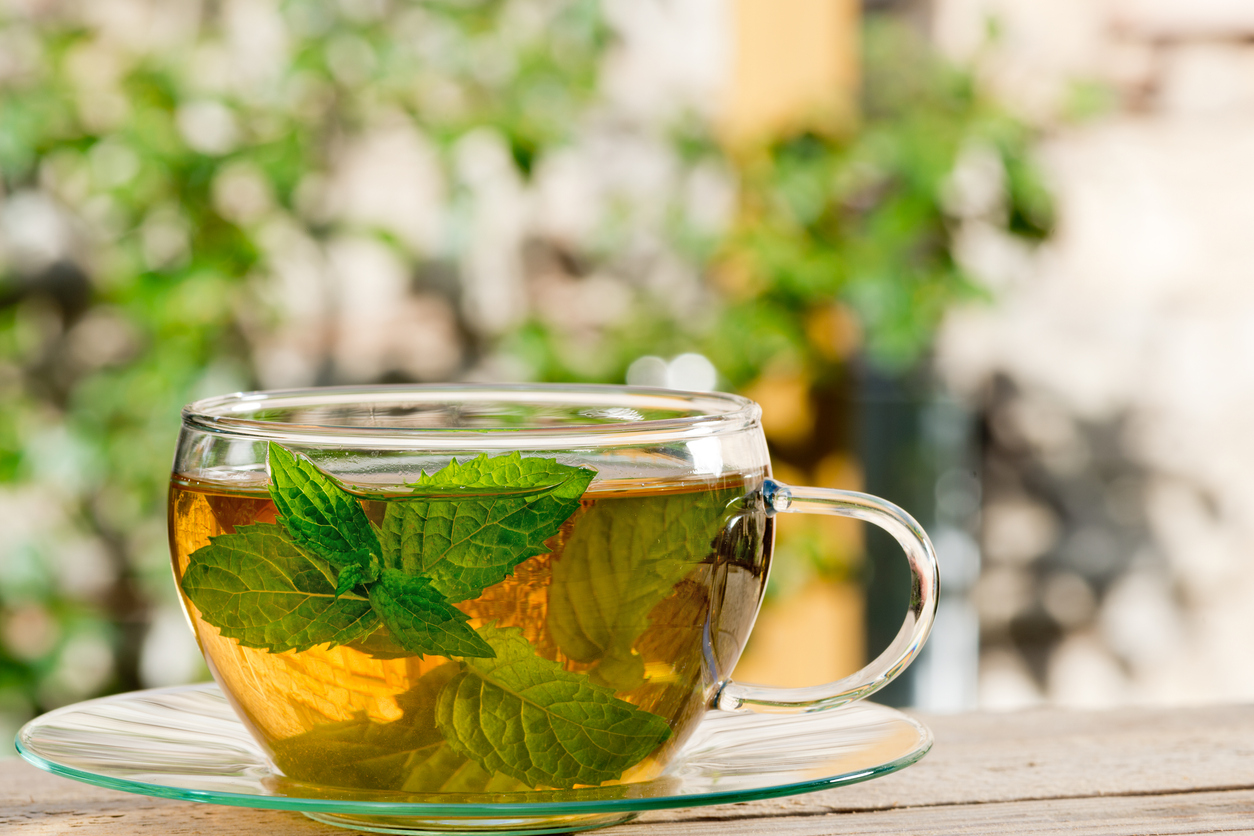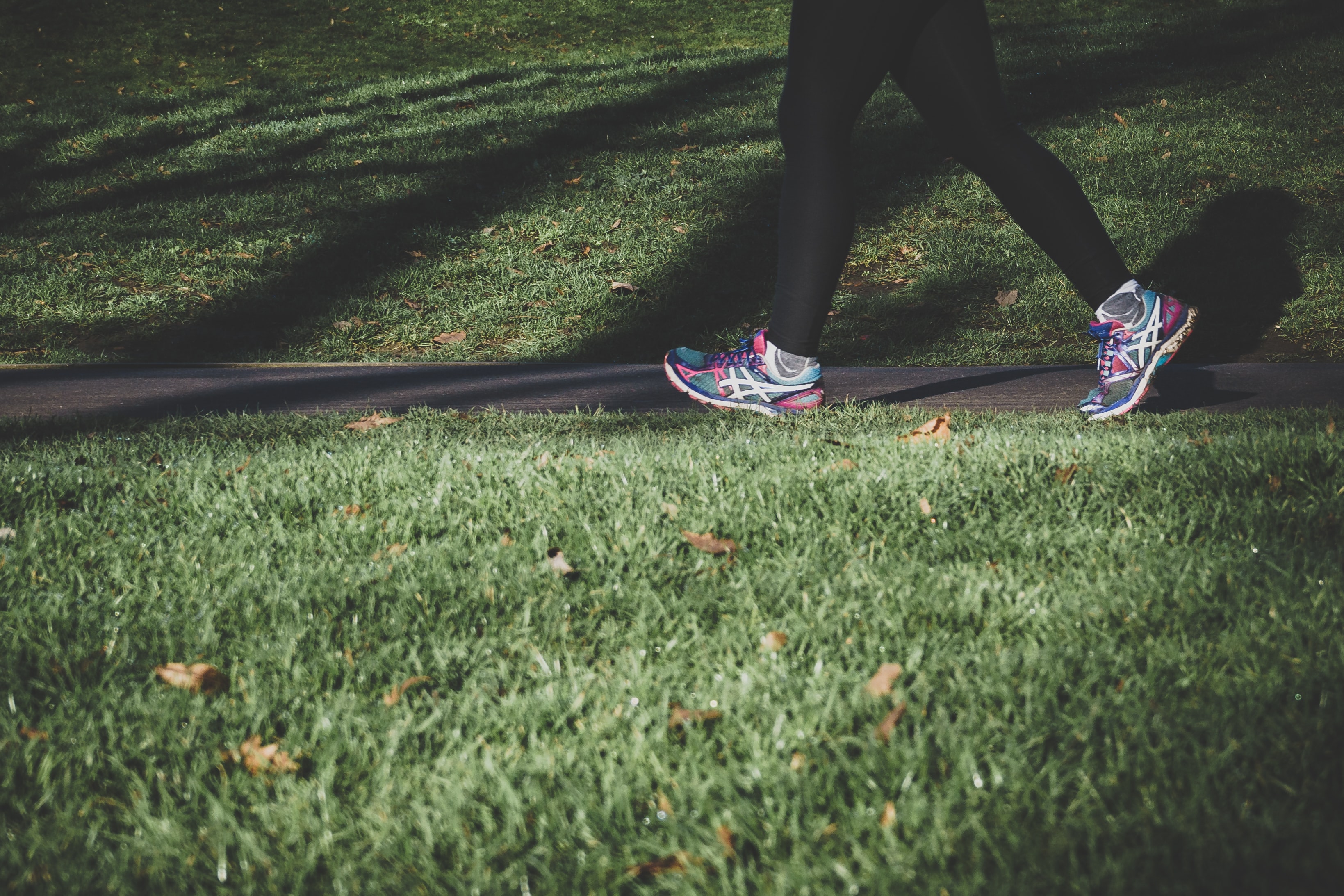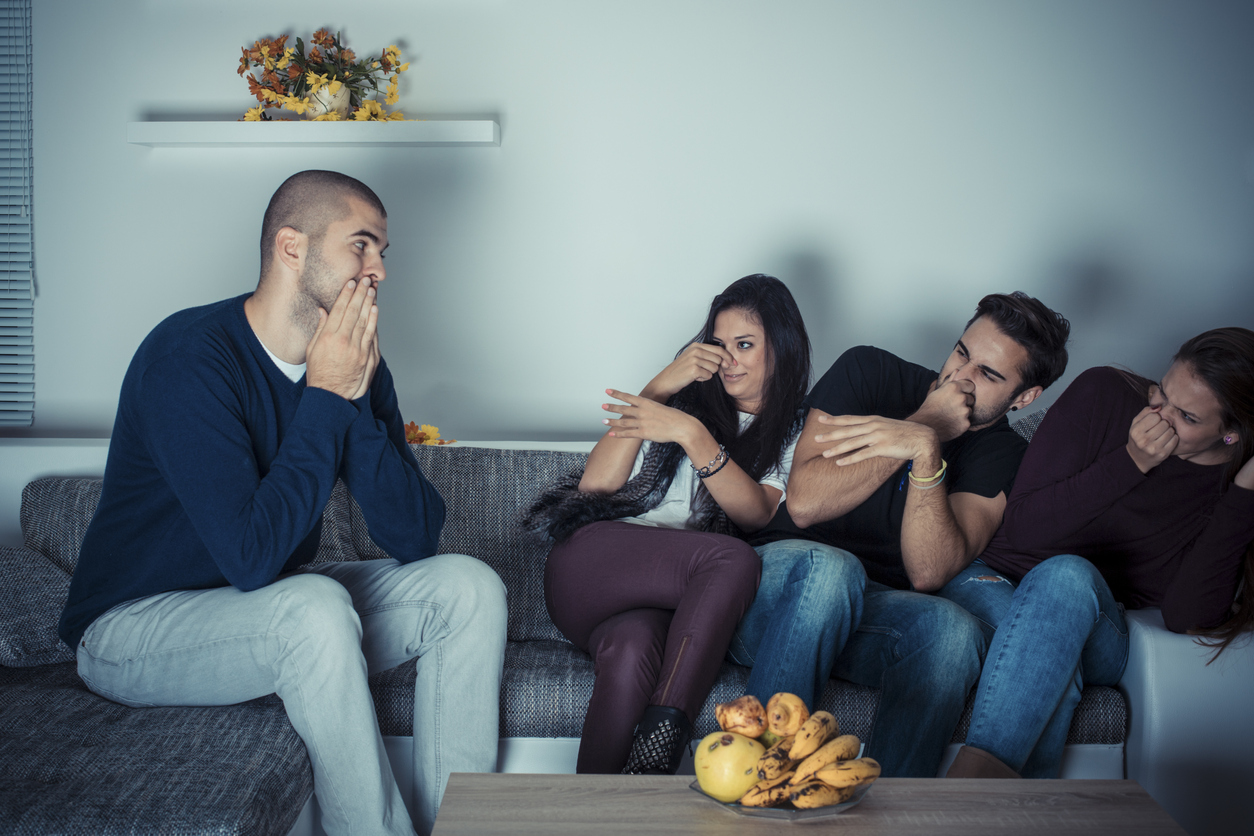What is flatulence?
Flatulence (also known as ‘farting’ or ‘passing wind’) happens when gas builds up in your digestive system and passes out of your bottom (anus).
The average person farts around 5 to 15 times a day. Farting has a few different causes, but most aren’t anything to be concerned about.
Flatulence can sometimes become very uncomfortable and embarrassing, especially in social situations, so it’s important to see a doctor if it’s causing you distress. It can sometimes be a sign of an underlying health condition too.
So read on to find out what causes farting, when it’s worth tackling it, what you can do yourself and when you need to see a doctor.
Why do I fart so much?
Flatulence can have lots of different causes. Some are natural causes, which are easier to manage, while some are down to medication you might be taking or an underlying health issue. Burping (belching) is also known as wind, but the term ‘flatulence’ refers to farting.
Food and drink
Certain foods and drinks can create excess farting, including foods containing carbohydrates that can’t be absorbed by your intestines. These are broken down by bacteria in your large intestine (colon), causing a gas build-up, which then leaves your body as a fart.
Foods that contain a high amount of these kinds of carbohydrates include:
- beans, pulses and lentils
- vegetables such as broccoli, cauliflower, cabbage and Brussels sprouts
- onions
- raisins and prunes
- apples
- Jerusalem artichokes
- garlic
- wheat
- chicory root
Other foods and drinks that can make you fart include:
- sorbitol – an artificial sweetener found in sugar-free gum, slimming products and other products
- fructose – a type of sugar found in fruits, vegetables and honey
- unrefined cereal fibre – such as bran
Read more about what foods and drinks cause flatulence
Which foods make farts smell really bad?
Your farts may smell particularly bad after you eat foods like cabbage and onions, as these vegetables can make your body produce gas containing sulphur. Everyone’s different, so other foods might also give you foul-smelling wind. You’ll have to figure out by trial and error which are best to steer clear of.
Swallowing too much air
We all swallow air without realising it when we breathe or eat, but gulping down too much can make you fart more than usual.
Excess air can get into your body when you:
- don’t chew your food properly – swallowing big pieces of food leads to more air going down with it
- chew gum
- smoke
- suck on sweets or a pen lid, for example
- drink fizzy drinks and beer – swallowing the gas from the bubbles in these drinks causes too much air in your digestive system
Read more about how to get rid of trapped wind.
Medicines
Many medicines can cause flatulence as a side effect. These include:
- statins that help lower cholesterol
- some types of laxatives
- non-steroidal anti-inflammatory drugs (NSAIDs) – such as ibuprofen
- antifungal medication – such as fluconazole, which is used for thrush
- varenicline – a medicine used to help stop smoking

Do I have a health condition?
Flatulence can be a symptom of certain health problems or conditions, such as:
- constipation
- indigestion
- gastroenteritis
- lactose intolerance
- irritable bowel syndrome (IBS)
- coeliac disease
- malabsorption – when your body can’t fully absorb nutrients
- giardiasis
If you think you might have one of these conditions and your symptoms aren’t getting better with self-care, see a doctor for advice.
Stress and anxiety
Being very stressed or anxious can create lots of farting. Stress can also be linked to certain health conditions like IBS where stress and anxiety can cause symptoms like flatulence. Or it may be linked to stress relief behaviour, such as smoking or chewing gum where you take in extra air.
How to stop flatulence
Reducing or preventing flatulence depends on what’s causing it. Here are a few ways to help prevent and treat any excess or smelly gas:
Change your diet
Try to cut out the foods and drinks that you know cause you to fart a lot – or try a food diary to work it out. Different people react in different ways to food, but it’s generally a good idea to avoid:
- foods that are high in carbohydrates that your body can’t absorb
- foods that contain artificial sweeteners
- chewing gum
- fizzy drinks and beer
You might also want to try the low FODMAP diet if you have IBS symptoms, which include farting, bloating and tummy cramps. FODMAPs (which stands for ‘fermentable oligosaccharides, disaccharides, monosaccharides and polyols’) are types of carbohydrates found in high-fibre foods such as beans and wheat. These can affect your gut, making IBS symptoms worse.
Recent research suggests this type of diet might help relieve IBS symptoms for some people, but it can be difficult to maintain. This is why it’s best to see a doctor or dietician first for advice if you’re keen to try this diet.
Read more about how to treat bloating and gas quickly.

Eat more slowly
To aid your digestion and cut down on flatulence, try to chew your food more slowly, so you swallow less air. Also, by chewing your food as much as possible, it allows the enzymes in your saliva to have enough time to start breaking down the carbohydrates in food, making it easier to digest.
If you have 3 large meals a day, you could try having 6 smaller meals instead. Smaller meals are easier for your body to digest, which may lead to less gas build-up.
Drink peppermint or ginger tea
Although more research is needed, some evidence suggests that drinking peppermint tea and small amounts of ginger may help relieve flatulence in some people, as it helps indigestion or an upset tummy.
If you’re pregnant, first ask a doctor if it’s safe for you to use ginger. Read more about home remedies for indigestion.
Dietary supplements to ease flatulence
Certain dietary supplements are thought to help with flatulence. The main ones are:
Probiotics
Some evidence suggests that probiotics may help restore your gut balance by supporting the growth of ‘friendly’ bacteria in your digestive system. Probiotics have been studied in people with IBS and some evidence does suggest they’re safe and can ease IBS symptoms, including flatulence. There’s still a need for more research but the evidence so far is encouraging if you’d like to give these supplements a try.
Probiotics can be bought as a liquid or in capsule form, or as yoghurts. If you eat them as yoghurts, make sure not to eat the yoghurts with added fibre or artificial sweeteners, as these may upset your tummy.
But keep in mind that probiotics aren’t suitable for everyone as they might not work for all causes of flatulence, so discuss their use with a doctor first. Read more about how probiotics work and how safe they are.
Charcoal tablets
Some research suggests that charcoal tablets may help treat flatulence by absorbing gas trapped in your digestive system. You can buy them at pharmacies, but first check with a pharmacist if they’re suitable for you as they may interfere with other medicines you’re taking.
To help with foul-smelling farts, you may even want to consider trying clothing that contains activated charcoal, or charcoal pads, which can be placed inside your clothing (similar to a sanitary pad). These are available online.

Exercise regularly
Flatulence can be treated or prevented by getting regular exercise. Being active improves how well your digestive system works, which helps manage bloating and farting. Read more about how to beat the bloat.
Give up smoking
Quitting smoking can help you with flatulence. This is because more air than usual gets into your body when you smoke and your digestive system also gets irritated by tobacco smoke.
Treat any underlying health conditions
Flatulence can be a sign or symptom of a number of health problems and conditions. It’s important to see a doctor for advice and treatment if your flatulence is distressing you or you’re concerned about other symptoms.
When to see a doctor
There aren’t any medical guidelines that determine how much farting is ‘normal’ or how loud a ‘normal’ fart should be – it’s different for everyone. But if you’re finding it embarrassing and it feels like it’s taking over your life, you’re farting a lot more than normal, it’s causing you serious abdominal discomfort, or you regularly have very smelly farts, it’s important to see a doctor.
You should also see a doctor if you:
- have diarrhoea or constipation that won’t go away or keeps coming back
- have stomach pain or bloating that won’t go away or keeps coming back
- lose weight without trying to
- have sudden urges to poo that you can’t control (bowel incontinence)
- have blood in your poo
- vomiting or trouble swallowing
- have a high temperature (fever), joint and muscle pain, chills and other symptoms of an infection
These could be signs of an underlying health condition, so book an appointment with a doctor if you have any of them.
If you’re worried about your symptoms, try our Smart Symptom Checker.
Your health questions answered
Why do my farts smell so bad?
Answered by: Healthily’s medical team
"Farts are made up of gases which are produced when food is digested. Some of these gases are odourless and some, like hydrogen sulphide, are very smelly. So sometimes, farts will be odour-free and other times they'll smell bad.
The smell can also vary from person to person and will depend on factors like what you’ve eaten and how long the food has been in your gut. Some medication can also have an effect on flatulence and cause smelly farts.
Sometimes, persistently smelly farts can be a sign of an underlying medical condition like lactose intolerance or an infection so if you're concerned, speak to a doctor."
Why do I fart so much at night?
Answered by: Healthily’s medical team
"Farts can happen anytime during the day or night and there are many reasons why you may fart more than usual. At night you may eat a big meal and then go straight to bed, which can cause more gas to build up during the night as your body digests this large amount of food.
Another reason could be you’re eating your dinner too quickly, so you might be swallowing more air and not chewing your food enough, which causes flatulence. Or you might eat food that makes you produce more gas, like fructose-rich food such as dried fruit. Taking medication at night like lactulose or antacids also makes flatulence more likely.
Also, if you share your bed at night, your partner might make you more aware of it, as often we’re more active during the day so might notice it less.
Keeping a diary of your night-time routine (for example, what food you had for dinner, whether you smoked, when you took medication) might help you find a cause. But if the flatulence won’t go away and you’re worried, do discuss this with a doctor."







